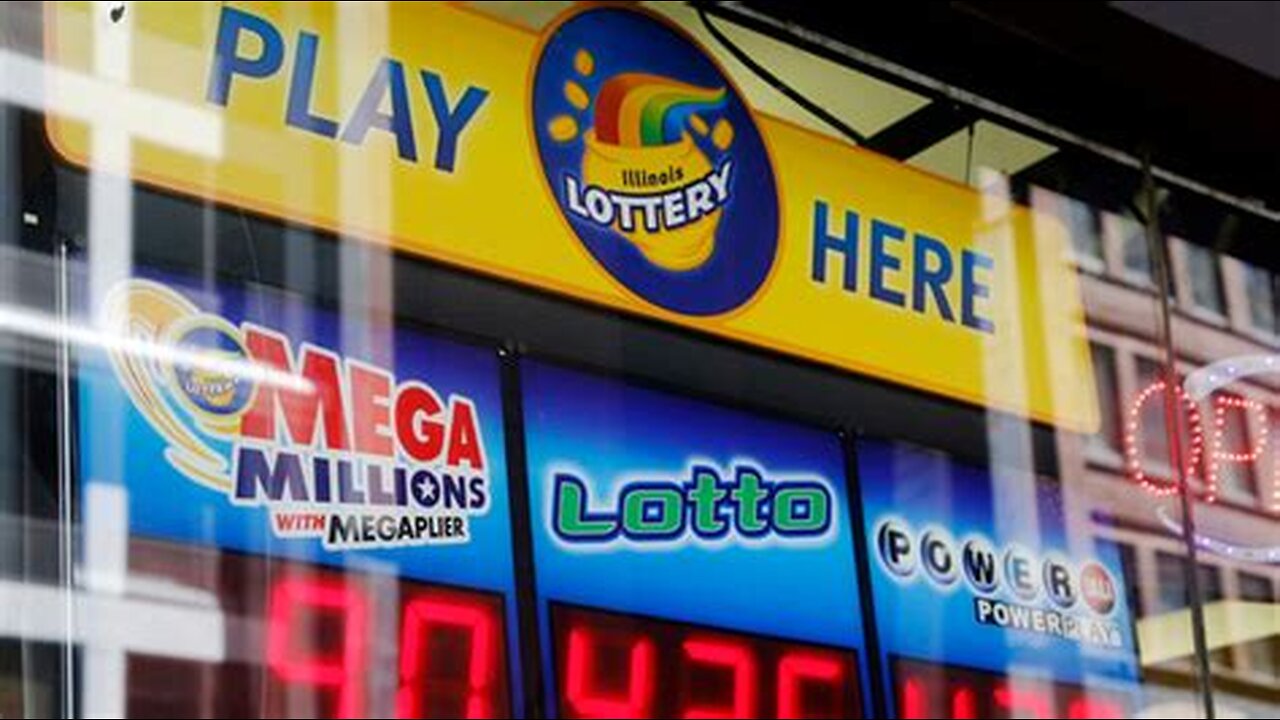Premium Only Content

The Illusion of Fortune: When Winning the Lottery Becomes a Nightmare
For many, winning the lottery represents a dream fulfilled—a gateway to financial freedom, security, and a life unburdened by economic stress. But for a group of Illinois lottery winners, that dream turned into a nightmare when they discovered that their jackpot winnings were out of reach due to a state budget crisis. Their story highlights the fragility of the systems that govern lotteries and raises pressing questions about accountability, fairness, and the promises made to players.
The Lottery Dream Gone Awry
The Illinois Lottery Crisis
In 2015, Illinois faced a severe budget impasse, leaving the state unable to pay out lottery winnings exceeding $600. This unprecedented decision blindsided lottery winners, who had already celebrated their windfalls. Instead of life-changing checks, winners were handed IOUs, effectively transforming their winnings into unattainable promises.
The Human Toll
For winners like Danny Chastin and Susan Rick, the $250,000 prize was not just a financial boost—it was an answer to their prayers. Chastin, a Chicago city employee, had joined a lottery pool with colleagues, expecting to receive $30,000 each. “It’s maybe not a lot of money to some people, but for us, it is,” Rick lamented. As the weeks turned into months without payment, their joy turned to frustration and anger.
A Legal Battle for Justice
With no clear resolution in sight, many winners turned to the courts, filing lawsuits against the state. The lawsuits argued that the Illinois Lottery’s failure to pay winnings constituted a breach of contract and an unfair denial of their rightful prizes. For the plaintiffs, it was not just about the money—it was about holding the system accountable for its promises.
The Larger Implications
The Illinois lottery crisis serves as a cautionary tale, exposing vulnerabilities in the lottery system that extend beyond state borders.
1. Trust and Accountability
Lotteries rely on public trust. When a state fails to pay winners, it undermines confidence in the system, discouraging future participation and tarnishing its reputation.
2. Legal and Ethical Questions
Does a state have the right to continue selling lottery tickets while withholding winnings? Critics argue that this practice is both unethical and potentially fraudulent, as players enter with the expectation that prizes will be honored.
3. The Fragility of State-Run Lotteries
State lotteries often function as a revenue source for public programs, but they are not immune to broader fiscal challenges. Illinois’ budget crisis exposed how financial mismanagement can ripple into seemingly unrelated areas, affecting citizens in unexpected ways.
Lessons for Lottery Players
1. Know Your State’s Financial Health
While it may seem unrelated, understanding a state’s budgetary stability can provide insight into its ability to fulfill lottery obligations. In states with ongoing fiscal issues, players may face higher risks of delayed payouts.
2. Understand the Fine Print
Lottery tickets often come with disclaimers outlining contingencies for payout delays. Players should familiarize themselves with these terms to avoid surprises.
3. Diversify Financial Dreams
While the lottery can be a tempting path to instant wealth, it’s essential to view it as entertainment rather than a reliable financial strategy. Build financial security through savings, investments, and prudent planning instead of relying solely on luck.
The Enduring Appeal of the Lottery
Despite such cautionary tales, the lottery remains deeply ingrained in human culture. Its appeal lies not just in the possibility of winning but in the dreams it inspires—the idea that a single ticket could transform one’s life.
The Psychology of the Lottery
• Hope and Escape: For many, the lottery offers an escape from the grind of everyday life and a chance to dream of a better future.
• Shared Experience: Playing the lottery often fosters a sense of community, whether through office pools or shared anticipation of a jackpot drawing.
• The Thrill of Uncertainty: The lottery taps into the universal allure of risk and reward, making it a form of entertainment with the potential for life-changing outcomes.
Conclusion: A Fragile Dream
The Illinois lottery crisis is a stark reminder of the complexities behind the glittering promise of jackpots. For those who enter the game, it’s essential to understand both the risks and rewards—not just in terms of odds but also in the reliability of the system itself.
While winning the lottery may seem like the ultimate dream, stories like this one remind us that even the grandest dreams can be disrupted by the realities of governance, economics, and human fallibility. As we play, let us do so with both hope and caution, remembering that the true value of a lottery ticket lies not in its promise of riches but in the dreams it allows us to imagine.
-
 6:53
6:53
FragmentsOfTruth
5 days agoThe Illuminati’s Hidden Pathways: Power, Masks, and the Ritual of Control
207 -
 1:57:39
1:57:39
The Charlie Kirk Show
2 hours agoThe Greatest Deportation Wave in History + AMA | Homan | 2.7.2025
59.8K50 -
 2:02:15
2:02:15
LFA TV
17 hours agoMAINSTREAM MAGA! | LIVE FROM AMERICA 2.7.25 11am
66.7K32 -
 DVR
DVR
Game On!
3 hours ago5 SHOCKING Super Bowl Stats and Trends!
4.04K1 -
![[Ep 601] USAID / CIA | Panama | Guest Sam Anthony of [your]NEWS](https://1a-1791.com/video/fwe2/b0/s8/1/E/U/D/u/EUDux.0kob-small-Ep-601-USAID-CIA-Panama-Gue.jpg) 2:01:29
2:01:29
The Nunn Report - w/ Dan Nunn
3 days ago[Ep 601] USAID / CIA | Panama | Guest Sam Anthony of [your]NEWS
8.09K11 -
 58:57
58:57
The Dan Bongino Show
5 hours agoDOGE Uncovers More Corruption Than We Ever Thought Possible (Ep. 2418) - 02/07/2025
671K1.43K -
 47:52
47:52
The Rubin Report
3 hours agoCalifornia Businessman Makes Joe Rogan Go Quiet with Never-Before-Told Details of LA Fires
75.8K30 -
 2:05:11
2:05:11
Benny Johnson
3 hours ago🚨INSURRECTION: Violent Democrats Storm DC Federal Buildings! Vow to Impeach Trump | 100K Feds Resign
116K273 -
 1:06:22
1:06:22
The Big Mig™
18 hours agoGlobal Finance Forum From Bullion to Borders
9.26K7 -
 1:34:04
1:34:04
Film Threat
16 hours agoLOVE HURTS + HEART EYES + LOADS OF REVIEWS | Film Threat Livecast
11.2K